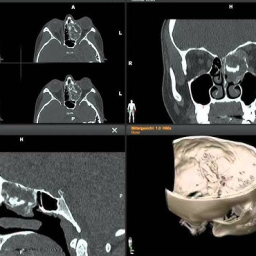
Top EMR Systems in UAE: Best Solutions for Healthcare Providers
The healthcare landscape in the UAE has evolved rapidly, especially with the increasing demand for digital transformation in hospitals and clinics. As medical practices prioritize efficiency, Electronic Medical Records (EMR) systems have emerged as vital tools. Choosing the best EMR system tailored for UAE healthcare providers involves understanding features, compliance, and integration with broader systems like Hospital Information Systems (HIS).
Whether you manage a private clinic in Dubai, a multi-specialty hospital in Abu Dhabi, or a polyclinic in Sharjah, selecting the right EMR can significantly improve patient care, data management, and operational productivity.
What Makes the Best EMR System in UAE?
To identify the best EMR software for healthcare facilities in the UAE, several factors must be considered:
-
MOHAP and DHA compliance
-
Cloud-based architecture
-
Integration with LIS, HIS, and billing systems
-
Arabic language support
-
User-friendly mobile interface
-
Customizable templates for different specialties
Local regulations and patient privacy laws must also be taken into account. A reliable EMR system should not only store electronic medical records securely but also enhance communication across departments and platforms.
Understanding EMR vs HIS: What’s the Difference?
Choosing between EMR vs HIS can be confusing, especially since both are vital components in healthcare IT.
EMR vs HIS: Key Differences
-
Electronic Medical Records (EMR):
Focuses on storing patient-specific clinical data. EMR is primarily used by doctors, nurses, and clinical staff to manage patient history, diagnoses, medications, lab results, and treatment plans. -
Hospital Information System (HIS):
Broader in scope. HIS covers administrative, financial, and clinical operations. It includes modules for billing, inventory, HR, EMR, LIS, and more.
In short, EMR is a subset of HIS. Most modern solutions integrate both to offer a full-suite experience, allowing seamless clinical and administrative workflows.
Top Features to Look for in an EMR in the UAE
When evaluating options for the best EMR system in the UAE market, look for these essential features:
Cloud-Based Access and Remote Login
A cloud-hosted EMR offers scalability, secure data access, and flexibility. Doctors can access patient data remotely, a crucial feature for telemedicine and remote patient monitoring (RPM).
Specialty-Specific Templates
Dermatology, pediatrics, gynecology, orthopedics – each specialty requires tailored documentation. The ideal EMR system offers customizable templates for every department.
Multilingual Support
With a diverse patient population, UAE healthcare facilities benefit from EMR systems that offer both English and Arabic interfaces.
Integration with Other Systems
Seamless integration with LIS, HIS, E-invoicing, and pharmacy systems is essential. This ensures minimal data redundancy and maximum operational efficiency.
Regulatory Compliance
Ensure the EMR meets UAE healthcare standards, including MOHAP, DHA, and SEHA guidelines. Compliance guarantees better audits and legal protection.
Top EMR Vendors in UAE to Consider
Below is a list of popular EMR vendors known for their efficiency, support, and compliance in the UAE region:
-
Cerner Middle East – Strong presence in government hospitals, highly scalable.
-
Epic Systems – Robust but often used by large institutions due to high cost.
-
HealthCluster – MENA-focused EMR with integration to HIS and LIS.
-
TrakCare by InterSystems – Combines EMR with HIS features.
-
Regencare – Cost-effective solution tailored for UAE clinics and polyclinics.
Each solution has its strengths, and the best choice depends on your facility’s size, budget, and workflow requirements.
How Electronic Medical Records Transform Healthcare
Using electronic medical records improves care continuity, reduces paperwork, and prevents medical errors. In the UAE, where medical tourism is on the rise, EMRs offer a competitive edge by providing detailed, accessible, and accurate patient data.
Benefits of Electronic Medical Records
-
Faster access to patient history
-
Secure data exchange between departments
-
Better clinical decision-making
-
Streamlined appointment and prescription handling
-
Enhanced reporting for insurance claims
Many clinics report a 30% reduction in patient waiting time after EMR implementation. Efficiency leads to better reviews, higher patient satisfaction, and improved business growth.
Why UAE Healthcare Providers Are Switching to EMR
UAE’s vision for healthcare digitalization, as part of its Smart Government initiative, drives the adoption of EMRs. With high smartphone penetration and strong infrastructure, clinics and hospitals are ready to embrace next-generation health technologies.
Investments in AI, IoT, and remote patient monitoring are also driving the need for advanced EMR systems that can integrate with wearable devices and patient apps.
To stay updated on the latest EMR trends and digital health in the UAE, platforms like fox10.news often highlight innovations and new policy changes affecting healthcare IT.
Choosing the Right EMR: Checklist for UAE Clinics
Before you finalize your decision, use this quick checklist to select the right EMR solution:
-
✅ MOHAP/DHA compliance
-
✅ Arabic interface support
-
✅ Patient portal availability
-
✅ Integration with E-invoicing and LIS
-
✅ Mobile accessibility
-
✅ Local tech support
-
✅ Strong cybersecurity features
For small clinics, cloud-based EMRs with mobile-friendly dashboards are often the best fit. Larger hospitals may require on-premises or hybrid solutions that offer better control over data.
Cost of EMR Systems in UAE
The cost of EMR software in the UAE varies based on:
-
Number of users
-
Deployment type (cloud vs on-premise)
-
Customization needs
-
Integration requirements
Typically, pricing starts from AED 500 per user/month for basic features, and can go up to AED 3,000+ for enterprise-level modules.
Some vendors offer one-time license fees with annual maintenance, while others use a subscription-based pricing model.
FAQs: Best EMR Systems in UAE
1. What is the difference between EMR and HIS?
EMR handles clinical data specific to patient care, while HIS includes administrative, financial, and operational hospital functions. EMR is a part of HIS.
2. Is using EMR mandatory in the UAE?
Yes, both MOHAP and DHA encourage all healthcare facilities to adopt EMR for compliance, data accuracy, and patient safety.
3. Can EMR systems be customized for different specialties?
Absolutely. The best EMR systems in UAE offer templates tailored for general practice, cardiology, gynecology, and more.
4. Are cloud-based EMRs secure for UAE clinics?
Yes, provided they follow UAE data protection laws and implement robust encryption, access control, and backup protocols.
5. How can I train my staff to use a new EMR?
Most EMR vendors offer on-site or remote training. Choose a provider with UAE-based support for better onboarding and troubleshooting.
Final Thoughts: Invest in the Best EMR for Long-Term Value
The best EMR system in the UAE goes beyond digitizing patient charts. It streamlines care, ensures regulatory compliance, and improves your clinic’s operational efficiency. Whether you’re opening a new polyclinic in Dubai or upgrading your hospital IT infrastructure in Abu Dhabi, investing in the right EMR is a strategic decision.
Compare vendors, request demos, and ensure local support to make the most of your EMR investment. UAE’s healthcare future is digital—don’t get left behind.















